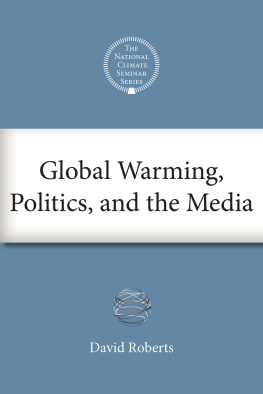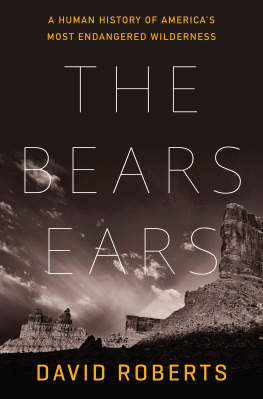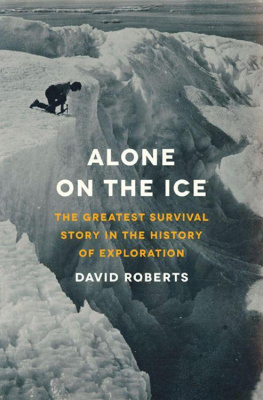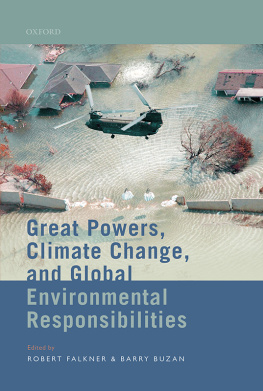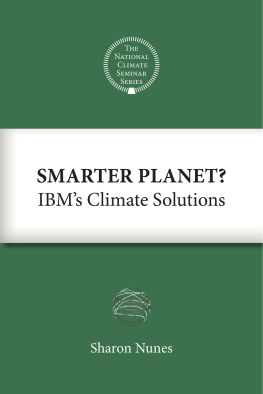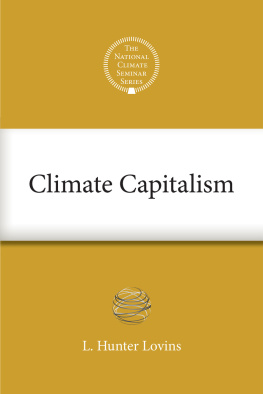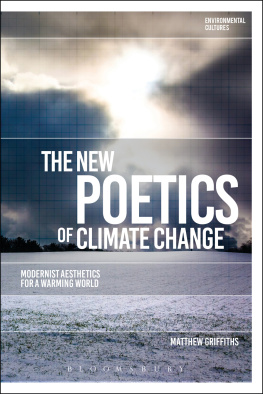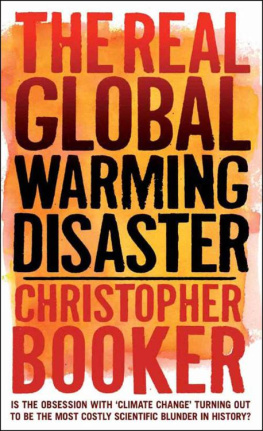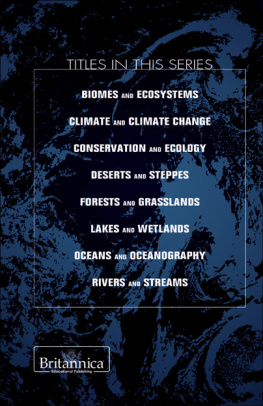The National Climate Seminar
Global Warming,
Politics,
and the Media

David Roberts

Washington | Covelo | London
Copyright 2012 Island Press
All rights reserved under International and Pan-American Copyright Conventions. No part of this book may be reproduced in any form or by any means without permission in writing from the publisher: Island Press, 2000 M Street, NW, Suite 650, Washington, DC 20036.
ISLAND PRESS is a trademark of the Center for Resource Economics.
Cover design by Maureen Gately
Cover image khalus, iStockphoto.com
Introduction
On September 21, 2011, David Roberts participated in The National Climate Seminar, a series of webinars sponsored by Bard Colleges Center for Environmental Policy. The online seminars provide a forum for leading scientists, writers, and other experts to talk about critical issues regarding climate change. The series also opens a public conversation, inviting participants to ask questions and contribute their own thoughts.
Roberts is a Senior Staff Writer at Grist, one of the webs most popular sites for environmental news and commentary, and therefore is distinctively qualified to discuss the relationship between global warming, politics, and the media. In his lecture, Roberts argued that environmentalists traditional criticism of climate change coveragenamely that journalists describe global warming as a debatable theory rather than as factis no longer the issue. Most media accept the reality of climate change, but it is treated as a specialty issue rather than as a phenomenon that affects myriad aspects of life. The seminar focused on how to change that perceptionhow to make climate a backdrop to the political debates that affect real change.
What follows is an edited version of Robertss talk and the subsequent question-and-answer session. While some material has been cut and some language modified for clarity, the intention is to retain the substance of the original discussion.
Global Warming,
Politics,
and the Media
Seminar by David Roberts
First, I want to say a few general things about climate change and media coverage since for the past eight years, Ive followed not only the climate story but also the perpetual anger among environmentalists about the way climate is covered. Ive often thought that this critique is too narrow and off-key in some ways.
The standard critique is that media presents climate change as a theory and you have to hear from both sides. So you hear from the climate scientist, who says XYZ is happening, and then you get a token quote from the other side, from the Heritage Foundation or another group, casting doubt on whether its really happening. The criticism is, Were beyond that by now. The science is firm enough that you should be treating climate change as though its a fact.
That, to me, is a narrow way of approaching the question. First of all, recent studies have found that the media is not really reporting on climate science that way anymorecertainly not nearly as much. Most mainstream journalists now will say that the majority of scientists accept that climate change is real. So, first, I think that critique just isnt all that true anymore. But secondly, I dont think that was ever really the problem
I want to step back and consider exactly what were talking about when we discuss media coverage of climate change. You can call climate change an issue, but its not really an issue like unemployment or sexting in schools. Its not an isolated issue. Climate is everythingits every story. So when we talk about covering climate, are we talking about climate science: ocean acidification or desertification or projections of severe weather (which is in the news a lot now)?
Is the climate story necessarily about the scientific, climactic effects of this phenomenon? Or is the climate story about human beings efforts to reorient their industrial society so as to avoid the worst of climate change or adapt to what they cant avoid? Thats a whole different set of stories about resilience and political entrenchment by certain industries: its about policy and politics. Or, is climate a bigger story about existential questions: what it means to be human on Earth in the twenty-first century; what it means for us that were in this situation; how we need to redefine ourselves; how we interact with ecosystems. Or is it about personal behaviorlight bulbs and public transit?
All these things are in some way or another climate change stories, and they all get told in fragmented bits and pieces, here and there. But if you ask me whats missing from the media environment on climate, I have to answer that with an analogy. Anybody whos had the misfortune of following politics lately knows that the US deficit is an enormous looming concern that lurks behind every policy decision we make.
Journalists rarely feel the need to offer any facts to support this notion. Their stories simply assume that the deficit is a looming problem. Everybody knows it, so when the media is writing about Social Security, Medicaid, or any other public spending, its not a story about the deficit, but the deficit is a backdrop in that story.
You dont actually see a lot of newspaper stories about the deficit, per se. The deficit itself is not the focus, although occasionally theres a story about its sheer size: Wow, look how big this number is. If you stacked the deficit in pennies, they would go to the moon. But most of the time the deficit is just a background condition that informs every story about politics.
As it happens, I think our assumption about the deficit deserves to be contested. But the point is that this is what it would look like if the media and elite political classes understood and accepted climate change. Its not that they would write a bunch of stories about climate change. Its that every story about building a road or a pipeline or anything else concerning monetary policy would include the message: We need to cut carbon emissions because of climate change. That unspoken assumption would lie behind everything journalists wrote. And that is whats not happening.
The media and elite in this country think of climate change as an issue: capital I issue. Its comparable to poverty in Africa. Every once in a while, out of guilt, journalists cover poverty in Africa. But its not an issue that informs how you live, the stuff you really care about: the real meat and potatoes of American politics. Poverty in Africa is this altruistic, nice Lefty issue that hovers on the periphery. Thats how the media think of climate: as an issue you have to check off your coverage box periodically but not something that is a driver of policy and economic life in the US.
This view informs coverage of environmental activism, including the recent protests against the Keystone Pipeline led by Bill McKibben. The media covered the issue, but failed to put it in context. The media doesnt have climate in its bloodtheres no presumption against building pipelines because of climate. The news coverage had a peculiar tone: Heres the latest thing these Lefties have decided is bad and theyre protesting. It was seen as business-as-usual, another Lefty protest.
This is why theres perpetual frustration that the Tea Party, with much smaller protests, gets ten times more media coverage. The other day, I read about a Tea Party protest against Mitt Romney where there were 40 reporters and fewer than 10 attendees: literally a four to one ratio of media to attendees. The media accepts the issues that the Tea Party protests: government overreach, government spending, high taxes. This is the background condition of our politics, so it resonates with them.
Next page
